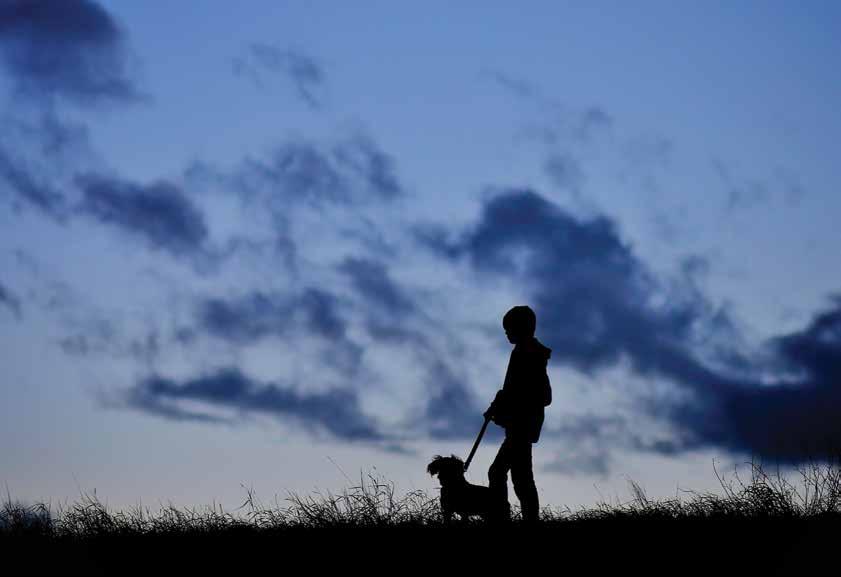
2 minute read
Talking with children about COVID-19
Supplied by Alberta Health Services
Parents and other trusted adults play a major role in helping kids understand health and safety in an honest and accurate way. A calm, meaningful conversation may help minimize their fears and anxieties as they navigate school.
A few tips:
• Being safe today will help ensure you can have fun all year long.
• Let children know it’s OK if they’re sad or scared about COVID-19. Accept their feelings without judging.
Emotions come and go. It’s OK to feel sad or upset or distressed. In most cases, these feelings do not last long.
• Avoid telling a child not to worry. The goal is to help a child realistically evaluate risk based on reliable information.
• Show them healthy ways to deal with stress, such as active living, meditation, regular sleep and healthy eating. They will learn how to deal with stress by watching and copying what you do. • Maintain social connections – it will help you (and others around you) feel less isolated. Reach out to friends or family by phone or video chat. For information, go to https://www.alberta.ca/restrictionson-gatherings.aspx.
• Correct misinformation and avoid using language that may create stigma and blame others for COVID-19.
• Let kids know that you’re there for them and that they can ask you questions.
• Focus on how they can protect themselves and others from getting sick. Teach children ways that they can reduce the spread of germs. Talk to them about the importance of wearing a mask. Cough or sneeze into a tissue or their elbow, and teach them to wash their hands thoroughly and often. Supply them with hand sanitizer for times when they are unable to wash.
• Keep routines as regular as possible to provide kids with a sense of security and safety. Maintain regular bedtimes, mealtimes and exercise.

• Encourage positive thoughts. Talk about the people who are working hard to keep people safe and healthy. Find examples in your community of people doing good things. Find ways to do something kind for others.
• Check in regularly to ask how the child is doing. Provide comfort, if necessary, and be patient.
• Remind children and youth to take things day by day if they’re feeling overwhelmed. If even this seems overwhelming, then take things hour by hour. And talk to your healthcare provider if you are struggling. • Go to www.ahs.ca/helpintoughtimes to learn more about how to talk to kids and how you can connect them with support, if needed.
• Last but not least, take care of your own health. We can all be overwhelmed during times of uncertainty. Be honest about your own feelings. Find ways to complete normal tasks, even if you’re feeling worried. You are best able to help children when you take care of yourself, too.
• If you find you are still struggling, talk to your family healthcare provider. You will also find more resources at ahs.ca. n










